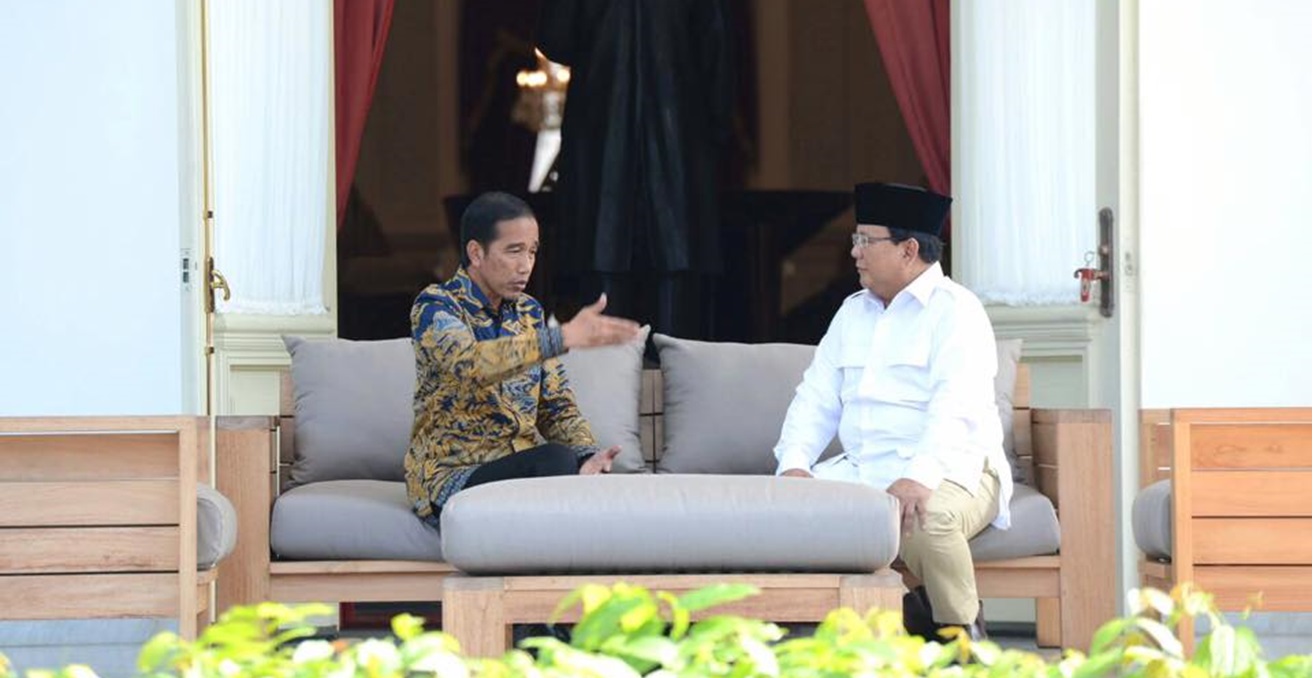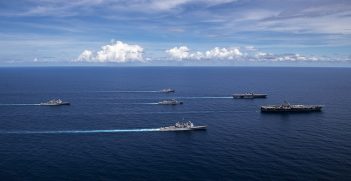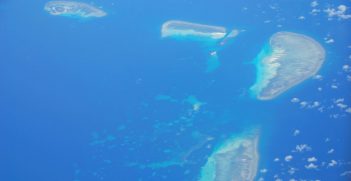Canvassing Indonesia’s Future Foreign Policy: How Do the Three Candidates Stack Up?

Some foreign policy analysts may wonder whether, under a new president, Indonesia would take a drastic departure from its current foreign policy trajectory. A closer examination of the programs, promises, and statements made by the presidential candidates so far suggests that such fears are misplaced.
The political campaigns for Indonesia’s 2024 presidential election are in full swing. Since the incumbent president, Joko (Jokowi) Widodo, is constitutionally barred from running for a third term, there will inevitably be a new Indonesian president by the end of the year. Consequently, it is understandable that some foreign policy scholars and officials in other countries may be curious whether the new president will drastically change Indonesia’s foreign policy trajectory.
However, such fears are unwarranted. After several months of sputtering their visions and promises on the campaign trail, it is clear that no candidate wants to dramatically alter Indonesia’s “free and active” foreign policy – avoiding geopolitical blocs and actively contributing to solving world problems – as the country’s foreign policy basis.
Ganjar Pranowo and Prabowo Subianto
Ganjar Pranowo, the former governor of Central Java, has a more inward-looking foreign policy orientation. During the recent presidential debate he made it clear that he views foreign policy as a way to source foreign investment to boost Indonesia’s economic development and, by extension, create more jobs for the Indonesian people. On this, his foreign policy vision is similar to that of the incumbent president.
Perhaps his most significant foreign policy statement occurred when, during the debate, he brought up the need to reform the Association for Southeast Asian Nations (ASEAN) so that it does not require unanimity in making decisions. This would make it easier for ASEAN to take a stance on the South China Sea dispute. Additionally, owing to the deadlock in the South China Sea Code of Conduct negotiations between ASEAN and China, Ganjar proposed that an “interim agreement” be made between the concerned ASEAN member states while they wait for the final Code of Conduct to be finalised. However, he did not elaborate on the technicalities of such an interim agreement.
The other candidate, the current Defense Minister Prabowo Subianto, has also stated explicitly that he will continue the foreign policy vision of the incumbent president, especially his resource nationalism (hilirisasi) policy of banning the export of unprocessed materials and industrial down-streaming policies to build factories in Indonesia and create jobs for the local populace. During his speech at Indonesia’s Centre for Strategic and International Studies he outlined his “good neighbour policy” as the basis for his foreign policy goals. Indonesia would maintain solid and friendly relations with its neighbours, including Australia. He also promised that Indonesia would continue its long-standing policy of not joining any geopolitical blocs, whether led by China, Russia, or the United States. These expressions suggest he will not take Indonesia in a radical foreign policy shift.
With that being said, a more assertive foreign policy has been discerned in Prabowo’s rhetoric. In an interview with Newsweek, he promised that Indonesia would take a more visible leadership role to champion for the interests of Global South countries, particularly the issue of United Nations Security Council reform, and being an “interlocutor” between the Global North and Global South countries. While this may seem to be a departure from the current foreign policy, it is essential to note that Indonesia has always seen itself as one of the significant Global South powers.
Prabowo has often been vocal in his repudiation of Western political interference, though it is considered that such statements have been more politically opportunistic. He has been a strong proponent of a militarily and economically stronger Indonesia, as such statements have often indicated. And as defense minister, he has made multiple outreaches to Western countries to modernise Indonesia’s military armament and strengthen Indonesia’s international defence partnerships. With Australia, he has met his counterpart multiple times on a bilateral basis or 2+2 meetings. Additionally, his position on AUKUS is more conciliatory compared to the official government position, noting that, regarding “new multilateralisms,” he “understands” and “respects” the right of countries to “defend and enhance their sovereign rights.“ Consequently, while he has criticized the West several times during the campaign trail, a closer analysis of his actions and policies made during his stint as defense minister demonstrate that such remarks could be nothing more than a way to present himself as a strong leader to the electorate.
Anies Baswedan’s “Value-Based Foreign Policy”
The final candidate, former Jakarta Governor Anies Baswedan, has quite a different foreign policy orientation. While Prabowo and Ganjar have inward-looking foreign policies, Anies’ foreign policy is more internationalist. He espouses a so-called “value-based foreign policy” as his foreign policy vision. These values include the primacy of human life, territorial integrity, justice, and nature stewardship. Only upon such values can Indonesia’s foreign policy make the nation a more reliable partner for other countries. He also promised to make Indonesia an “agenda-setter” in leading international initiatives instead of being a passive member of the international community.
In presenting his vision, Anies has contrasted his approach with what he deems a “transactionist” and “passive” foreign policy approach under Joko Widodo. Under Jokowi, Indonesia has compromised its interests of upholding international values for foreign investment from countries that have violated international rules and norms. This is exemplified in Indonesia’s response to the Russian invasion of Ukraine. Indonesia, argues Anies, should have done more to express its disagreement with the Russian invasion, even at the expense of its friendly relations with the country.
It is hard to see Anies’ “value-based foreign policy” as a departure from the current “free and active” foreign policy approach. The two doctrines do not necessarily contradict one another. It is possible that Indonesia could still be a non-aligned country while still criticising countries that violate its values – be it a Western, China, or Russia-aligned country. The key would be in holding a consistent approach while asserting the nation’s values in relations with all countries, regardless of their geopolitical alignments or ideology. More importantly, his election manifesto also states clearly that he would “balance” Indonesia’s participation in rivalling organisations led by rivalling powers – most notably China’s Belt and Road Initiative, the World Trade Organization, and BRICS. A “value-based foreign policy,” then, should be considered as a strategy to carry out Indonesia’s “free and active” foreign policy doctrine.
For the time being, Indonesia’s foreign policy trajectory is likely to remain consistent. However, this is not a case for complacency. Foreign governments should be more attuned to the most crucial issue for the three candidates – creating jobs and building the Indonesian economy – if they wish to further concretise relations between Indonesia and their countries.
Trystanto Sanjaya holds a Bachelor’s degree in International Relations from Universitas Gadjah Mada in Yogyakarta, Indonesia, from which he graduated in January 2024. Between January and May 2023, he was an exchange student at L’Institut d’études politiques de Paris (Sciences Po Paris) in Reims, France. He could be reached via email at trystantosan@gmail.com or on Twitter (X) at @Trystanto2
This article is published under a Creative Commons Licence and may be republished with attribution.





